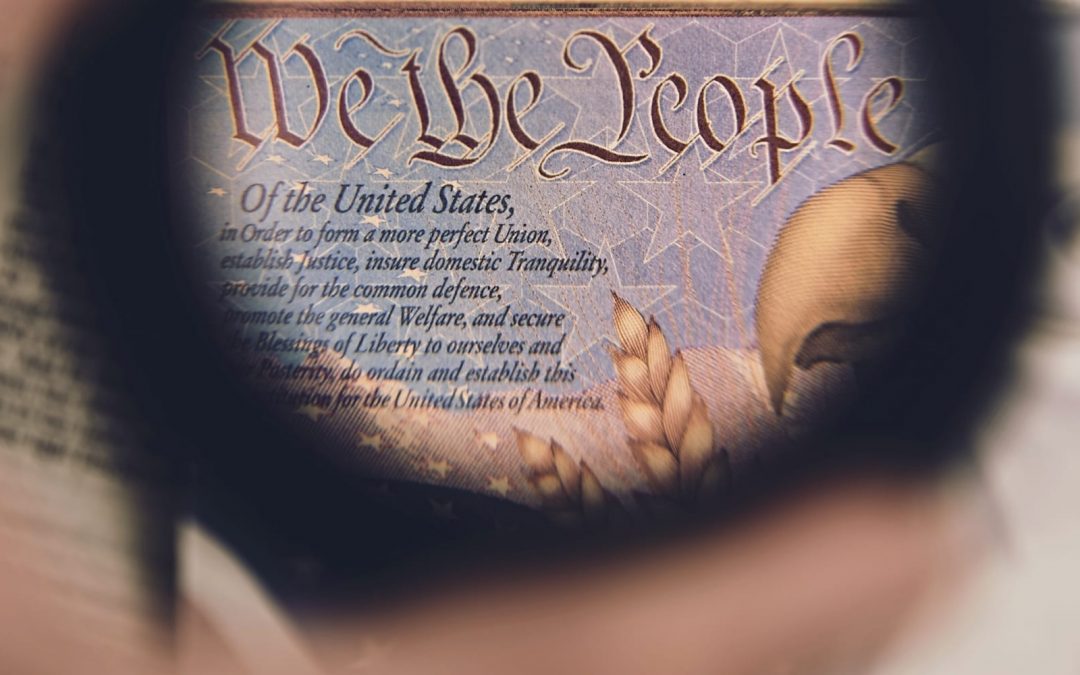The debate over the political activity ban – also called the Johnson Amendment – continues to play out in Missouri.
Don Hinkle, who serves as director of public policy for the Missouri Baptist Convention (MBC) and edits the convention’s publication, wrote an editorial backing Republican Senate hopeful Josh Hawley’s push to repeal the political activity ban.
However, like Hawley (see earlier post), Hinkle gets some basic facts wrong.
Hinkle, who has endorsed Hawley, starts his editorial by attacking the media for criticizing Hawley on the issue.
Hinkle particularly complains about a Springfield News-Leader article that reported on the fact that Churchnet (also known as the Baptist General Convention of Missouri) issued a statement supporting the political activity ban. (I serve as associate director for Churchnet.)
Hinkle claims the newspaper was “incorrect” but never admits that actually many Baptists in Missouri support the political activity ban.
Later in his editorial, Hinkle seems to be confused about the U.S. Constitution. Calling the political activity ban “unconstitutional,” he argued about the passage of the ban in 1954. “It took Congress only 179 years to tell the Founders they were wrong.”
The number of years didn’t seem right, so I checked the math.
The First Amendment, ratified in 1791, occurred 163 years before 1954. Even the Constitution, ratified in 1788, occurred 166 years before 1954.
So, I assumed he went with the famous 1776 even though that actually marks the Declaration of Independence, which includes no First Amendment or religious liberty guarantee. But even that was just 178 years before 1954.
So, clearly, he’s counting wrong. But it’s not just the math that’s wrong.
Congress didn’t tell the founders they were wrong. Tax exemption is not a constitutional right. I explained in the Jefferson City News-Tribune how pastors still have First Amendment rights to endorse candidates.
Hinkle also messed up another basic fact about the case. He wrote that “no church has ever lost its tax-exempt status over politics … [b]ecause the IRS knows it would likely lose in court.” He’s wrong on both counts.
One church did, in fact, lose its tax-exempt status for engaging in partisan politics – and the courts backed the IRS after that church sued!
Perhaps Hinkle wants to forget that case because it undermines his key argument that the political activity ban violates the First Amendment.
The U.S. Court of Appeals actually argued the IRS didn’t violate the First Amendment rights of the church.
In his column, Hinkle doesn’t go quite as far as he did in comments to the Springfield News-Leader, where he falsely claimed, “Southern Baptists have always been staunch opponents” of the ban because “it denies us our First Amendment Rights.”
Yet, the Southern Baptist Convention (SBC) has never taken a position on the political activity ban.
While some SBC leaders have called for its repeal, those remarks mostly occurred just over the past decade.
In his editorial, Hinkle doesn’t make such a definitive claim about SBC opposition to the political activity ban, but he does quote SBC resolutions on the First Amendment.
But, as we’ve seen from the U.S. Appeals Court, supporting the First Amendment doesn’t mean one must oppose the political activity ban. (In fact, I support both the First Amendment and the political activity ban.)
It’s frustrating to see a Baptist leader pushing so hard to bring the corrupting influence of partisan politics into our houses of worship. And it’s even more frustrating that he does so with false claims.
Editor’s note: A version of this article first appeared on Kaylor’s website. It is used with permission.


